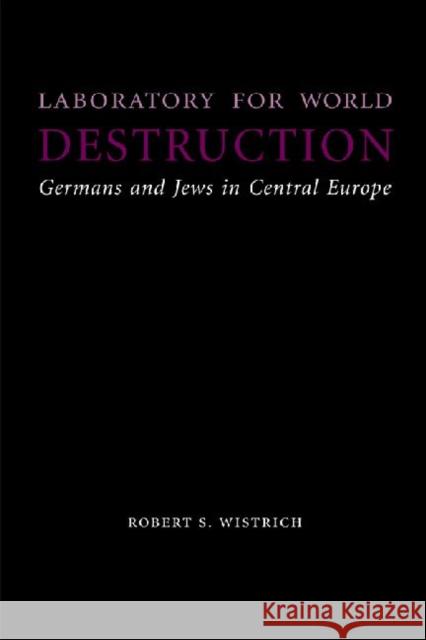Laboratory for World Destruction: Germans and Jews in Central Europe » książka
Laboratory for World Destruction: Germans and Jews in Central Europe
ISBN-13: 9780803211346 / Angielski / Twarda / 2007 / 410 str.
Published and distributed for the Vidal Sassoon International Center for the Study of Antisemitism During the sixty years between the founding of Bismarck's German Empire and Hitler's rise to power, German-speaking Jews left a profound mark on Central Europe and on twentieth-century culture as a whole. How would the modern world look today without Einstein, Freud, or Marx? Without Mahler, Schoenberg, Wittgenstein, or Kafka? Without a whole galaxy of other outstanding Jewish scientists, poets, playwrights, composers, critics, historians, sociologists, psychoanalysts, jurists, and philosophers? How was it possible that this vibrant period in Central European cultural history collapsed into the horror and mass murder of the Nazi Holocaust? Was there some connection between the dazzling achievements of these Jews and the ferocity of the German backlash? Robert S. Wistrich's Laboratory for World Destruction is a bold and penetrating study of the fateful symbiosis between Germans and Jews in Central Europe, which culminated in the tragic denouement of the Holocaust. Wistrich shows that the seeds of the catastrophe were already sown in the Hapsburg Empire, which would become, in Karl Kraus's words, "an experimental station in the destruction of the world." Featured are incisive chapters on Freud, Herzl, Lueger, Kraus, Nordau, Nietzsche, and Hitler, along with a sweeping panorama of the golden age of Central European Jewry before the lights went out in Europe. Robert S. Wistrich holds the Neuberger Chair of Modern Jewish History and since 2002 has been director of the Vidal Sassoon International Center for the Study of Antisemitism at the Hebrew University of Jerusalem. His book The Jews of Vienna in the Age of Franz Joseph won the Austrian State History Prize, and his book Hitler and the Holocaust has been translated into more than twenty languages.











